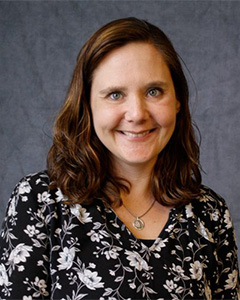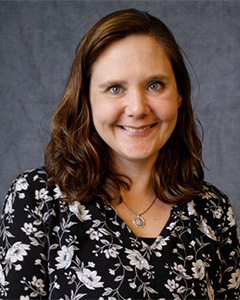MPHI’s Center for Child and Family Health (CCFH) collaborates with multi-disciplinary stakeholders to prevent infant and child mortality, promote oral health, strengthen supports to vulnerable populations, and increase the health and well-being of children and families. Staff work on surveillance and data management systems, policy compliance monitoring, program evaluation, needs assessments, training and technical assistance, and quality improvement projects. CCFH has over twenty years of partnership with Michigan’s Child Welfare state and local staff.
Center Highlights
Michigan Fatality Review and Prevention Initiatives
CCFH’s Michigan Fatality Review and Prevention (MRFP) uses various strategies to lift up the life stories of children and adults in Michigan who have died in order to prevent future fatalities.
Birth and Mortality Data Systems Improvement Initiatives
In-depth, accurate, and consistent mortality data is the cornerstone of implementing effective public health policies and initiatives.
Family Strengthening and Support Initiatives
Working to ensure children and families can thrive within their communities by establishing systems rooted in family well-being, prevention, and equity.
Project Highlights

To understand and prevent overdose fatalities, MPHI’s Center for Child and Family Health (CCFH) partnered with the Michigan Department of Health and Human Services (MDHHS) Centers for Disease Control and Prevention-funded Michigan Overdose Data to Action team and Michigan State Police’s Comprehensive Opioid, Stimulant, and Substance Use Program (COSSUP) to establish local Overdose Fatality Review (OFR) teams across Michigan. OFRs involve a series of confidential death reviews by county-based multidisciplinary teams, which include several public health and safety partners. An OFR team examines a decedent’s life cycle, including substance use history, comorbidity, major health events, social-emotional trauma, encounters with law enforcement, treatment history, and other factors, to facilitate a deeper understanding of opportunities for prevention and intervention involved in overdose fatalities. The recommendations that OFR teams develop can inform data-based decision-making and assist communities in identifying and addressing service gaps and systemic barriers to prevention.
The Michigan Overdose Fatality Review (MiOFR) Program was established in 2020 and continues to expand across the state. CCFH is actively onboarding new county level OFR teams and providing technical assistance and support to existing OFR team coordinators, case abstractors, and team members. Additionally, CCFH facilitates an OFR State Advisory Group that supports standardizing OFR practices and procedures and reviews local OFR recommendations.

In partnership with Children Trust Michigan (CTM), MPHI’s Center for Child and Family Health (CCFH) provides technical assistance and support to the MiFRC Network, which was established in September 2021. Michigan’s Family Resource Centers (FRCs) are community-led, family-centered organizations that partner with caregivers to deliver supports and services that respond to each family’s individual needs and values. FRCs are places where families can connect with one another and with resources they value – including culturally responsive supports offered within and outside each center. FRCs are committed to creating safe, nonjudgmental, welcoming environments where all families feel that they belong, feel a sense of ownership, and can see themselves reflected.
FRCs aim to reduce the likelihood of child abuse and neglect using the evidence-based Strengthening Families Approach. The foundation of the approach consists of five protective factors found to build family strengths and foster a family environment that promotes child and youth development. These protective factors include:
- Parental resilience
- Social connections
- Concrete supports in times of need
- Knowledge of parenting and child development
- Social and emotional competence of children
The FRC model focuses on advancing primary prevention initiatives and encourages public and private agencies to work together and to become more preventative, responsive, flexible, family-focused, strengths-based, and holistic. Together, the MiFRC Network can leverage and coordinate the collective impact of its members. Creating opportunities for service providers to meet formally and informally, exchange information, make connections, develop relationships, build capacity, and address challenges that no one organization could on its own.

In partnership with the Michigan Department of Health and Human Services (MDHHS) that spans more than 25 years, MPHI’s Center for Child and Family Health (CCFH) manages the Michigan Child Death Review (CDR) program. This includes providing guidance, technical assistance, and annual training to local CDR teams covering all 83 Michigan counties and coordinating the Michigan Child Death State Advisory Team and the Citizens Review Panel on Child Fatalities.
The death of a child is a profound loss, not only for the child’s parents, family, and friends, but also for the larger community. To reduce the number and impact of these losses, we must first understand how and why children are dying. The CDR program was implemented in Michigan in 1995 to conduct in-depth reviews of child deaths and identify ways to prevent them. CDR is a collaborative process that brings together local professionals from a variety of disciplines who volunteer their time to share and discuss comprehensive information on the circumstances surrounding the deaths of children.
Local CDR teams use what they learn during the review process to develop findings and recommendations, which they share with other local entities who can help translate them into prevention initiatives that address needs specific to their communities. The goals of CDR are to influence policy and practice changes that: improve death scene investigations; improve the delivery of services to families; and prevent future fatalities. It is important to note that CDR is not about assigning blame, determining cause or manner of death, or prosecuting cases, as the teams have no official authority in any of these areas.
To learn more about the CDR program please visit the Michigan Fatality Review & Prevention website.

Sudden Unexpected Infant Death (SUID) Case Registry
The Centers for Disease Control and Prevention’s Division of Reproductive Health supports SUID monitoring programs in 32 states and jurisdictions, covering about 2 in 5 SUID cases in the United States. The SUID Case Registry builds on local child death review programs and uses the National Center for Fatality Review and Prevention’s Case Reporting System to compile information about the circumstances associated with SUID cases as well as information about investigations into these deaths. Participating states and jurisdictions use data about SUID trends and circumstances to develop strategies to prevent future fatalities and address persistent disparities in these deaths.
The SUID Case Registry first began in Michigan in 2010. Since that time, data has been gathered on all sleep-related infant deaths in each of the 83 counties in the state. In Michigan, sleep-related infant deaths are defined as deaths to infants less than 1 year of age that occur suddenly and unexpectedly due to:
- Suffocation/Positional Asphyxia;
- Sudden Infant Death Syndrome (SIDS);
- Undetermined/Sudden Unexpected Infant Death (SUID); and
- Other causes when the sleep environment was likely to have contributed to the death.
Sudden Death in the Young (SDY) Case Registry
The SDY Case Registry, which first began in Michigan in 2019, is funded by the National Institutes of Health (NIH) and the Centers for Disease Control and Prevention (CDC). The SDY Case Registry gathers information from a variety of sources to learn more about young people through the age of 18 who die suddenly and unexpectedly. The goals of the SDY Case Registry are to increase the understanding of the prevalence, causes, and risk factors for infants, children, and adolescents who die suddenly and unexpectedly and to inform strategies to prevent future deaths.
The following Michigan counties currently participate in the SDY Case Registry:
|
|
Michigan’s Fatal Drowning Case Registry
Michigan’s Fatal Drowning Case Registry is a collaborative effort between the National Center for Fatality Review and Prevention, the Centers for Disease Control and Prevention, and the National Network of Public Health Institutes that builds on the efforts of local CDR teams. Michigan was selected to pilot this initiative along with five other jurisdictions in 2021. Since 2022, information about the circumstances associated with fatal drownings in Michigan among children ages 0 through 17 years old has been gathered. The goals of the project are to 1) develop and pilot a nationally standardized drowning investigation tool, 2) enhance data collection in child drowning deaths using existing child fatality review programs, and 3) assess the feasibility of a national drowning case registry. The Fatal Drowning Case Registry aims to better understand the context and causes of fatal drownings, and to thereby address both the burden and observed disparities in drowning deaths for children across the country. By investigating these deaths in a more thorough manner, we hope to learn how to better prevent future drowning fatalities.

For over 20 years, MPHI has offered a Child DSI training, which was developed to address identified gaps in child death scene investigation. This one-day training is intended for law enforcement, emergency medical services, children’s protective services, medical examiner investigators, and prosecuting attorneys. The training focuses on death scene investigations, with special emphasis on Sudden Unexpected Infant Deaths (SUIDs), and provides participants with the tools needed to effectively carry out Child DSIs within a county or jurisdiction. Speakers include representatives from the medical examiner’s office, law enforcement, and the prosecuting attorney’s office. The training includes addressing scene evaluation, evidence collection, and doll re-enactments, as well as increasing appreciation of the unique roles of each discipline involved, and the use of the prescribed State of Michigan Sudden and Unexplained Child Death Scene Investigation form. In 2023, 142 professionals participated in the training with 93% of attendees reporting presentations met the stated objectives and 95% indicating information was presented fairly and without bias.
Overdose DSI
In 2024, CCFH received funding from the High Intensity Drug Trafficking Areas (HIDTA) to partner with professionals to develop an overdose death scene investigation (DSI) training. The goal of this training is to enhance the effectiveness of investigation procedures and standardize practices for any suspected overdose. CCFH is partnering with public health professionals, medical examiner offices, law enforcement agencies, prosecutor offices, children’s protective services, and emergency medical services to design, develop, and implement overdose DSI trainings. Over the course of 18 months, the training will be piloted, and feedback will be gathered to identify areas for improvement or modification before officially offering overdose DSI tool training for first responders in 2025.

MPHI’s Center for Child and Family Health (CCFH) was selected to develop a new or enhanced mandated reporter curriculum and virtually accessible training to ensure mandated reporters are aware of their requirements to report alleged child abuse and neglect while being aware of personal biases and how those may lead to disproportionality. Over the course of three years, CCFH is collaborating with a diverse group of partners to conduct listening sessions and key informant interviews and will be analyzing current mandated reporter training, laws, policies, practices, and relevant Michigan data to develop training that aligns with nationally recognized best practices.

Michigan was chosen as one of 10 sites funded by the Centers for Disease Control and Prevention in 2023 to implement enhanced community-based Sudden Unexpected Infant Death (SUID) prevention activities using SUID and evidence-based recommendations from the American Academy of Pediatrics. Over the next five years, CCFH will collaborate with Michigan 2-1-1 to enhance their existing resource database and provide training to call center staff to prepare them to respond to the needs of parents and caregivers of infants. Feedback from the community and existing data sources will be used to ensure the needs of all Michigan communities are met.

The Vital Events Registration Application (VERA) serves as a system for managing vital events, including birth, fetal death, paternity reporting, death, marriage, and divorce reporting. VERA is designed to assist hospitals and midwives in meeting registration deadlines as set by Michigan law for reporting births and fetal deaths; and meets reporting standards as set by the National Center for Health Statistics (NCHS).
Michigan’s Electronic Death Registration System (EDRS) provides a secure, web-based environment that supports online collaboration, from creating records to producing certified copies. EDRS allows funeral homes, medical certifiers, medical examiners, and registrar’s offices to complete death certificates online, 24 hours a day.
Vital statistics are compiled from these event registries to support public health, policy, and biomedical research. The Center for Child and Family Health (CCFH) provides education, training, and technical support for vital events, including birth, fetal death, death, marriage, and divorce reporting. Additionally, CCFH creates learning videos, documents and maintains and updates the EDRS and VERA websites.
Meet the Team
Click on any image or name to view full staff bio

Amy Jo Logel, MSW
Director of Center for Child and Family Health
Amy Logel has been the Program Director for the Center Child and Family Health (CCFH) at MPHI. She has worked at MPHI since 2008 and has been in her current position since 2017. Before coming to MPHI, she worked for Hospice of Lansing/Ionia Area Hospice. She has an undergraduate degree in psychology from Central Michigan University and graduate degree in macro-social work from Michigan State University. Amy brings her passion for supporting and strengthening individuals and families to her team and work at MPHI. The body of work in CCFH includes facilitating community-based fatality review processes, building strong multi-disciplinary state and local coalitions, improving Michigan’s mortality data, and program evaluation. Topics range from child safety, safe sleep, family strengthening, and overdose prevention. Amy enjoys spending time with her family, cheering for the Portland (Michigan) Raiders and Chicago Bears, as well as hiking and going to concerts.
Katie Hubbard, MA

Katie Parker, MA (she/her)
Senior Project Coordinator
Katie Parker has been employed with MPHI since 2009 and currently serves as a Senior Project Coordinator with the Center for Child and Family Health (CCFH). She coordinates Michigan’s child fatality case registries, including the Sudden Unexpected Infant Death (SUID) Case Registry, the Sudden Death in the Young (SDY) Case Registry, and the Fatal Drowning Case Registry. She is passionate about incorporating health equity concepts into the fatality review process and provides expertise in analyzing data collected by fatality review teams to inform local- and state-level prevention initiatives. Katie earned a Bachelor of Science in Psychology and Sociology and a Master of Arts in Ecological-Community Psychology, both from Michigan State University. She lives in East Lansing with her dog, Dug. Outside of work, Katie enjoys traveling, cooking and baking, and spending time with friends and family.
Heidi Hilliard, MPH, Senior Program Advisor

Heidi Hilliard, MPH
Senior Program Advisor
Heidi Hilliard received a Bachelor of Science in Psychology from Central Michigan University and a Master of Public Health from the University of Massachusetts, Amherst. For nearly 25 years, Heidi has been employed with MPHI, and is currently the Senior Program Advisor for the Center for Child and Family Health. Her primary experience has been in the fatality projects of Child Death Review (CDR), Fetal Infant Mortality Review (FIMR), the Sudden Unexpected Infant Death Case Registry (SUID-CR) and the Michigan Medical Examiner System Revision (MI ME). She is part of a national network of state CDR representatives and participates regularly in initiatives of the National Center for Fatality Review and Prevention, including as Co-Coordinator of the Midwest CDR Regional Coalition.

Alex Stough (she/her)
Community Health Consultant
Alex Stough is a Community Health Consultant for the Center of Child and Family Health (CCFH) at Michigan Public Health Institute (MPHI). Alex completed her undergraduate degree in Public Health from Eastern Michigan University in 2020. She has lived in Michigan her whole life and is excited to further her public health career. She has a background in facilitation and program coordination, case management for young adults experiencing homelessness, and substance use disorder harm reduction and prevention. Alex’s role at MPHI includes assisting with Michigan Child Death Review, Michigan Overdose Fatality Review, Vital Events Registration Application, and Electronic Death Registration System.

Angela Van Slembrouck (she/her)
Project Coordinator
Angela Van Slembrouck is a Project Coordinator for the Center of Child and Family Health (CCFH) at Michigan Public Health Institute (MPHI). She has a formal education in Sociology and Criminal Justice from Central Michigan University and is a Prevention Specialist certified by the Michigan Certification Board for Addiction Professionals. Her career has been spent working with various communities around the United States on substance use disorder and overdose prevention initiatives by utilizing harm reduction techniques, coalition facilitation, and promoting system-level change. Her role at CCFH includes co-coordinating the Overdose Fatality Review program and supporting the Child Death Review and Fetal Infant Mortality Review programs. Angela enjoys hiking, running, and spending time with friends and family.

Ashley Smith, MSA (she/her)
Community Health Consultant
Ashley Smith is a Community Health Consultant for the Center of Child and Family Health (CCFH) at Michigan Public Health Institute (MPHI). Before coming to MPHI, Ashley worked for the Michigan State Police as their Law Enforcement Information Network (LEIN) trainer and was also a Medical Examiner Investigator for Ingham and Eaton Counties. Ashley attended Oakland University earning her undergraduate degrees in Biology and Musical Theatre. She continued her education with Central Michigan University earning her master’s degree in science administration with a concentration in leadership. Ashley believes in building authentic relationships for continual growth and opportunities for collaboration. In her spare time, Ashley sings at retirement homes, and enjoys spending time with her girls and traveling with her family.

Kim Pickett (she/her)
Child Death Review Project Coordinator
Since 2014, Kim Pickett has been a Project Specialist at the Center for Child and Family Health (CCFH) at MPHI, and in December 2023 was promoted to the Child Death Review Project Coordinator. Kim holds a Bachelor of Science in Community Health Education from Western Michigan University with a minor in Family Life Education. She is a seasoned trainer and facilitator in the areas of safe sleep and Michigan fatality review processes, and she enjoys delivering the most up-to-date evidence-based content to multi-disciplinary audiences. Prior to joining MPHI, Kim served as a Health Educator for the Harris County Department of Education in Houston, TX as well as the Jackson County Health Department in Jackson, MI. Kim is a resident of Jackson, MI, and loves to spend quality time with her husband Devin, daughter Brinley, stepson Brennan, and Aussiedoodle Bella. In her downtime, Kim enjoys traveling to warmer destinations, attending country concerts, and cheering on her WMU Broncos!

Joye Sharp
Community Health Associate
Joye has been with MPHI since 2008, always working part-time, having retired from DHHS, after 35 years as both a CPS worker and supervisor. While initially working on the Home Help project, as well as some other short-term projects, she currently serves as a CDR consultant for 9 counties. She enjoys spending time with her daughter’s family and offering support to the sports efforts of her two grandchildren.

Melissa Brown (she/her)
Project Coordinator
Melissa has been with MPHI since June 2015, supporting the Vital Event Registration Application (VERA) and the Electronic Death Registration System (EDRS). She has over 15 years training experience between MPHI and her previous company. She has a bachelor’s degree in healthcare administration from the University of Michigan – Flint and is currently working on her Master of Arts degree in Education: Training and Development through Central Michigan University. In addition to facilitating trainings, she also creates supplemental training materials with a focus on microlearning. Melissa lives in Lansing with her son when he is home from college, and enjoys trivia, group workout classes and travel.

Nicole DeWitt-Blumhardt, MM (she/her)
Child Welfare and Prevention Advisor
Nicole has been at Michigan Public Health Institute on the Child Fatality program since 2012 and is the coordinator for Michigan’s Citizen Review Panel on Child Fatalities. Between 2019-2023, she coordinated the federal project, Child Safety Forward, funded by the Department of Justice. Nicole is a member of the National CRP Advisory and hosted the 17th Annual CRP Conference in Michigan in 2018. She has a background working in the foster care field before her time working in the child fatality world. She has a Bachelors’ degree in Community Services and a master’s in management.

Michelle Scott, MSW (she/her)
Program Manager
Michelle is a Program Manager at MPHI in the Center for Child and Family Health. She graduated from Michigan State University with a bachelor’s degree in family community services and a master’s degree in social work with a concentration in organization and community leadership. She has been working in Michigan’s nonprofit sector for over a decade in affordable housing, college access, and public health, focusing on equitable program design, management, and evaluation. At CCFH, Michelle assists with building collaborative relationships between community partners, public and private agencies, and people with lived experience to improve the safety and well-being of children and families. She provides support to the fatality review and prevention work housed at CCFH. Michelle is a native Michigander and outside of work she enjoys spending time outside with her husband, two children, and two dogs, and connecting with her community as a master gardener. She also serves on the board of directors for two foundations supporting domestic and international initiatives focused on combating human trafficking and the expansion of educational opportunities for youth.

Lindsey Schwanger, MSW (she/her)
Operations Manager
Lindsey Schwanger had been an Evaluation Specialist at the Center for Child and Family Health since November 2020 until transitioning to support the center as an Operations Manager in November 2023. During her time at MPHI, Lindsey has supported several projects in several capacities. Before coming to MPHI, she spent five years analyzing child welfare data and programming and became skilled at using this type of data to inform decision-making. Lindsey attended the University of Toledo to earn a Graduate Certificate in Child Advocacy (2014), a master’s in social work (2016), and has completed graduate-level coursework in Research and Measurement. She has taught research to bachelor’s level social work students in their junior year. Although she has lived all over the country, she now calls Marshall, Michigan home.

Ajena Dent, MPH (she/her)
Community Health Associate
Ajena Dent is a Community Health Associate for the Center of Child and Family Health (CCFH) at MPHI. Before joining MPHI, she completed both her bachelor’s degree and Master of Public Health at Western Michigan University. She has experience working with youth and families in a community setting, as well as experience working in substance use disorder prevention and education. She has helped to create youth-led substance prevention campaigns in the Southwest Michigan region. Ajena believes in the power of using the community’s voice to work toward equitable health outcomes. In her free time, she loves to read her bible, try new restaurants, spend time with loved ones and take walks.

Katie Parker, MA (she/her)
Senior Project Coordinator
Katie Parker has been employed with MPHI since 2009 and currently serves as a Senior Project Coordinator with the Center for Child and Family Health (CCFH). She coordinates Michigan’s child fatality case registries, including the Sudden Unexpected Infant Death (SUID) Case Registry, the Sudden Death in the Young (SDY) Case Registry, and the Fatal Drowning Case Registry. She is passionate about incorporating health equity concepts into the fatality review process and provides expertise in analyzing data collected by fatality review teams to inform local- and state-level prevention initiatives. Katie earned a Bachelor of Science in Psychology and Sociology and a Master of Arts in Ecological-Community Psychology, both from Michigan State University. She lives in East Lansing with her dog, Dug. Outside of work, Katie enjoys traveling, cooking and baking, and spending time with friends and family.

Lauryn Hutchinson, MPH, CHES (she/her)
Community Health Consultant
Lauryn Hutchinson is a Community Health Consultant for the Center of Child and Family Health (CCFH) at Michigan Public Health Institute (MPHI). Before joining the CCFH team she was a Health Educator at St. Clair County Health Department. She got her Master of Public Health degree from UofM- Flint (Go Blue!) and is a Certified Health Education Specialist. Lauryn has a passion for maternal and infant health, harm reduction and prevention education. In her free time, she can be found spending time with her daughter and husband.

Lori Herron (she/her)
Senior Financial Analyst
Lori Herron has been employed with the Michigan Public Health Institute since 2009, and currently serves as a Senior Financial Analyst with the Center for Child and Family Health (CCFH). Her duties include strategic leadership around financial planning, monitoring expenditures, financial projections, financial reports and program administrative processes. She lives in Holt, Michigan with her husband, daughter and two Boston Terriers. Lori enjoys travelling, camping, reading and spending time with her family.

Michelle Ferris, MPH (she/her)
Public Health Associate
Michelle joined Michigan Public Health Institute’s Center for Child and Family Health as a Public Health Assistant in 2022. She received her Bachelor of Science in Health Science from Grand Valley State University and her Master of Public Health degree from Western Michigan University. As a Public Health Associate, Michelle supports the Michigan Child Death Review (CDR) Program, Electronic Death Registration System (EDRS), the Vital Event Registration Application (VERA) projects and other projects at CCFH. Michelle’s passion for child and family health and prevention comes from years of working in a pediatric specialty clinic prior to joining MPHI. Outside of work Michelle enjoys reading, eating, and hanging out with family and friends.

Rylee Brownell (she/her)
Project Assistant
Rylee Brownell is a Project Assistant for the Center of Child and Family Health (CCFH) at Michigan Public Health Institute. When she joined MPHI she completed her internship and switched to full time in December 2023. She received her Bachelor of Science in Public and Nonprofit Health Administration from Grand Valley State University. As a Project Assistant, Rylee supports Electronic Death Registry System (EDRS), Vital Events Registration System (VERA), Michigan Child Death Review (CDR) Program, and other projects at CCFH. In her free time, she loves to watch sports, spend time with friends and family, and travel to new places.

Stacy Smith, MS (She/her)
Program Assistant
Stacy Smith has been employed with the Michigan Public Health Institute since 2022, and currently serves as a Program Assistant with the Center for Child and Family Health (CCFH). She received her Bachelor of Arts degree in Human Resource and Society from Michigan State University and her Master of Science degree in Early Childhood Education Administration from Nova Southeastern University. She has over 15 years of experience working directly with families. She also has a strong background in facilitation and project coordination. Stacy’s role at MPHI includes supporting the Michigan Child Death Review, Michigan Overdose Fatality Review, Electronic Death Registration System (EDRS), the Vital Event Registration Application (VERA), and other projects at CCFH. Outside of work, Stacy enjoys spending time with her husband and her two children.
Michigan Fatality Review and Prevention Initiatives
CCFH uses a variety of strategies to lift up the voices of children and adults in Michigan who have died in an effort to prevent future fatalities. Applying a health equity lens, the team at CCFH:
- Provides statewide technical assistance to communities related to conducting case reviews for infants, children, and youth, as well as adult overdose fatalities.
- Connects community discussions to state level advisory groups in order to identify emerging trends and inform policy and practice.
- Ensures consistent case record ascertainment from a variety of de-centralized sources such as medical examiners, law enforcement, and community-based service providers to inform fatality prevention initiatives.
- Uses mortality surveillance data to inform discussions with both community and state-level partners.
CCFH’s MFRP Initiatives Include:
- Michigan Child Death Review
- Michigan Citizen Review Panel on Child Fatalities
- Michigan Sudden Unexpected Infant Death Case Registry
- Michigan Sudden Death in the Young Case Registry
- Michigan Fatal Drowning Case Registry
- Michigan Overdose Fatality Review Program
Birth and Mortality Data Systems Improvement Initiatives
In-depth, accurate, and consistent mortality data is a cornerstone of implementing effective public health policies and initiatives. CCFH has over 25 years’ experience improving the quality, depth, and completeness of Michigan’s mortality data. By working closely with community partners across the state, CCFH continuously strives to identify and implement initiatives that will improve mortality systems and their resulting data.
- Assure consistent and accurate data entry into the national Child Fatality Review Case Reporting System and the national Overdose Fatality Review Data System.
- Provide training and support to a variety of users of Michigan’s Electronic Death Registration System and Michigan’s Vital Events Registration Application.
- Facilitate discussion with Michigan’s medical examiners, county commissioners, and other key stakeholders to identify legislation to improve upon the current medical examiner system.
- Provide training to child death scene investigators as well as support local collaboration among those disciplines.
Birth and Mortality Data Improvement Initiative:
- Michigan’s Electronic Death Registration System and Vital Events Registration Application
- Michigan Overdose Fatality Review
- Michigan Child Death Review
- Michigan’s Sudden Unexpected Infant Death Case Registry
- Michigan’s Sudden Death in the Young Case Registry
- Michigan’s Fatal Drowning Case Registry
- Michigan’s Citizen Review Panel on Child Fatalities
- Child Death Scene Investigation Training
- Proposed Improvements to Medical Examiner System Evaluation and Reform
- Fetal Infant Mortality Review
Family Strengthening and Support Initiatives
CCFH works to ensure children and families can thrive within their communities by establishing systems rooted in family well-being, prevention, and equity. In partnership with diverse stakeholders, including those with lived experience, CCFH is working to improve supports provided by local and state level systems. By focusing on an integrated and equitable system that empowers families and offers support to strengthen all families we are better positioned to increase protective factors and keep children and families together and safe.
CCFH’s Family Strengthening and Support programs include:
Michigan Family Resource Center (MiFRC) Network
- CCFH provides technical assistance and support to the MiFRC Network, which is focused on advancing primary prevention initiatives and concrete investments to strengthen families in Michigan communities.
Michigan’s Mandated Reporter Training
- CCFH is overhauling Michigan’s current mandated reporter curriculum and training to address implicit bias, reduce disproportionality, and help ensure there is no conflation of poverty and neglect.
Partnership with Michigan 2-1-1 to Support Parents and Caregivers of Infants
- CCFH will collaborate with Michigan 2-1-1 to enhance their existing resource database and provide training to call center staff to prepare them to respond to the needs of parents and caregivers of infants.
Location & Info
Center for Child and Family Health
2465 Woodlake Circle
Okemos, MI 48864
Ph: 517-324-8300
Fax: 517-324-7365
ccfh@mphi.org
https://mifrp.org/




